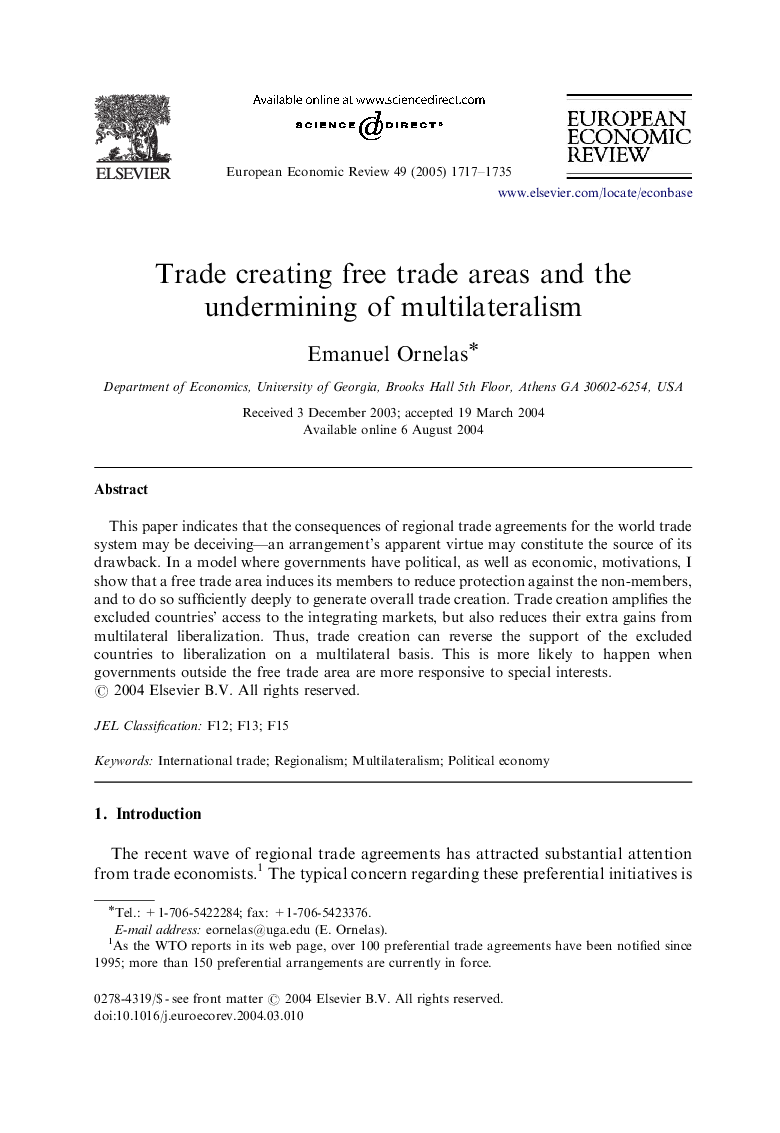| Article ID | Journal | Published Year | Pages | File Type |
|---|---|---|---|---|
| 9550829 | European Economic Review | 2005 | 19 Pages |
Abstract
This paper indicates that the consequences of regional trade agreements for the world trade system may be deceiving-an arrangement's apparent virtue may constitute the source of its drawback. In a model where governments have political, as well as economic, motivations, I show that a free trade area induces its members to reduce protection against the non-members, and to do so sufficiently deeply to generate overall trade creation. Trade creation amplifies the excluded countries' access to the integrating markets, but also reduces their extra gains from multilateral liberalization. Thus, trade creation can reverse the support of the excluded countries to liberalization on a multilateral basis. This is more likely to happen when governments outside the free trade area are more responsive to special interests.
Related Topics
Social Sciences and Humanities
Economics, Econometrics and Finance
Economics and Econometrics
Authors
Emanuel Ornelas,
